Disclosure: This article contains affiliate links. We may earn a commission from purchases at no extra cost to you, which helps our travel content.
The Mediterranean has always felt like home to me, perhaps because its waters kissed the shores of my childhood in Marseille. But there's something distinctly different about Algeria's coastline – rawer, less curated for tourism, and infinitely more intriguing. Last fall, I embarked on a week-long journey through Algeria's two coastal jewels: Oran and Algiers. These cities exist in fascinating tension between their French colonial past and their vibrant Arab identity, creating urban landscapes unlike anywhere else in North Africa. As someone who has navigated the complexities of dual heritage my entire life, I felt an immediate kinship with these cities caught between worlds. What follows is my guide to experiencing these remarkable urban centers as a solo traveler – where to wander, what to observe, and how to respectfully engage with a culture that remains largely unexplored by Western travelers. Yalla, let's begin.
Preparing for Algeria: The Visa Dance
Let's address the elephant in the room first: Algeria isn't exactly a walk-in destination. The visa process requires patience, planning, and paperwork – lots of it. As a French citizen, I had to provide an invitation letter from an Algerian contact, hotel reservations for my entire stay, and proof of financial means. The bureaucracy is formidable, but consider it your first lesson in Algerian life: things move at their own pace here.
I spent nearly two months securing my visa, with several visits to the Algerian consulate in Houston. My advice? Start the process at least three months before your planned trip. The official tourism infrastructure remains underdeveloped, making independent travel challenging but ultimately more rewarding.
While preparing, I dove into research using my travel notebook, filling pages with Arabic phrases, historical notes, and contacts. This became invaluable during my trip, especially when internet access proved spotty. For documentation, I organized everything – from visa papers to hotel confirmations – in a waterproof document organizer that became my lifeline throughout the journey.
Algeria operates largely as a cash economy, so I arranged for euros to exchange upon arrival. Credit cards are accepted at upscale hotels in Algiers, but elsewhere, cash is king.
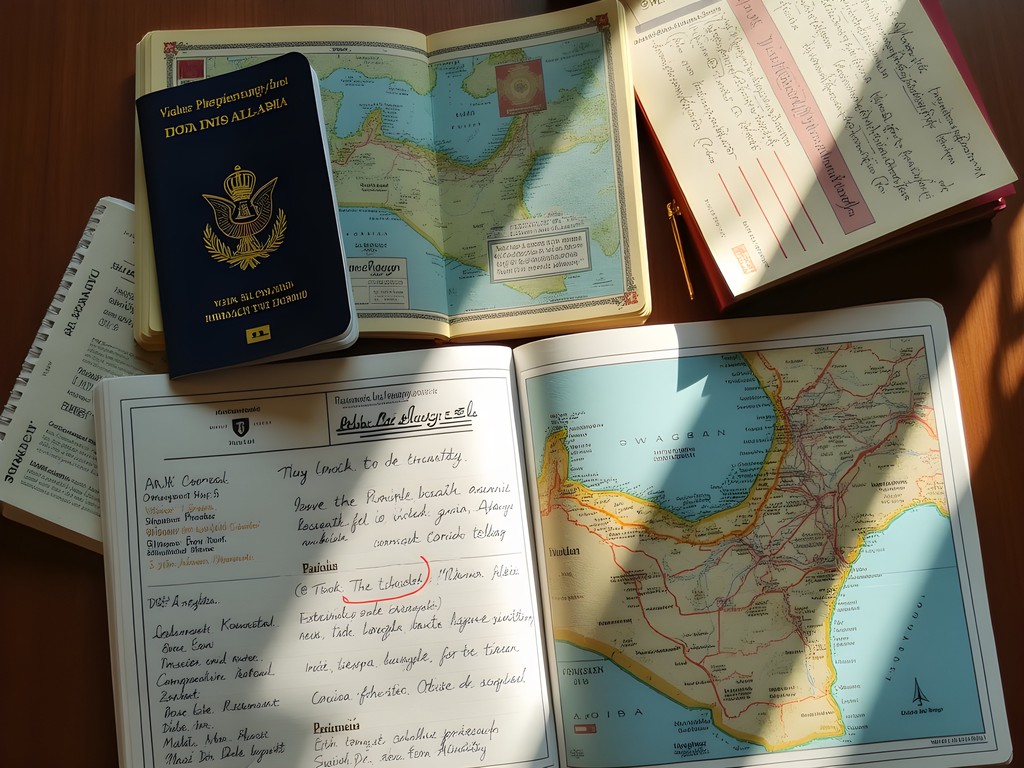
💡 Pro Tips
- Apply for your Algerian visa at least 3 months in advance
- Secure an invitation letter from an Algerian contact or your hotel
- Learn basic Arabic greetings – they go a long way in building rapport
- Register with your embassy upon arrival – Algeria still has security considerations
Oran: Where the Mediterranean Meets the Maghreb
My journey began in Oran, Algeria's second-largest city, known locally as wahran. The moment I stepped into its streets, I understood why Albert Camus was so captivated by this place. Oran is a sensory overload – the call to prayer echoing across terracotta rooftops, the persistent Mediterranean breeze carrying scents of spices and saltwater, and architecture that tells the story of French occupation alongside Islamic artistic traditions.
I based myself in the historic Santa Cruz neighborhood, staying at a modest pension run by an elderly Algerian woman who treated me like a long-lost son. From there, I explored the city primarily on foot, beginning with the imposing Fort Santa Cruz that offers panoramic views of the entire bay. The climb is steep but rewarded with vistas that capture the essence of Oran – a patchwork of whitewashed buildings cascading toward the azure Mediterranean.
The heart of Oran beats in Place du 1er Novembre, where locals gather throughout the day. I spent hours here simply observing the rhythm of daily life, sipping thick, cardamom-infused coffee at sidewalk cafés where men played dominos with theatrical slaps of tiles against wooden tables. Nearby, the Marché de Medina Jedida (New City Market) provided a crash course in Algerian commerce – chaotic, colorful, and completely authentic.
Oran's most striking feature is its architectural contrasts. The neo-Byzantine Cathédrale du Sacré-Cœur, now repurposed as a public library, stands as a testament to the French colonial period, while just streets away, the 17th-century Mosque of Pasha reflects the city's Ottoman heritage. Walking between them feels like traversing centuries and continents in minutes.
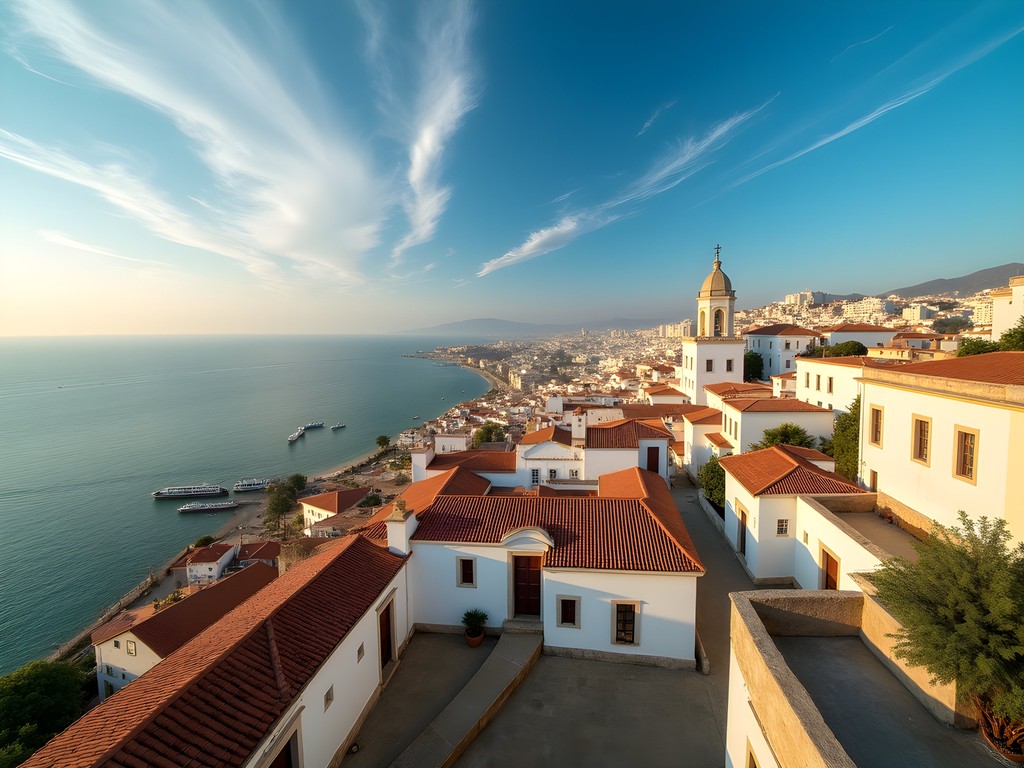
💡 Pro Tips
- Dress modestly out of respect for local customs – long pants for men, covered shoulders for women
- Visit Fort Santa Cruz in late afternoon for the best lighting and cooler temperatures
- Try Oran's specialty – karantika, a savory chickpea cake sold by street vendors near Place du 1er Novembre
The Cultural Labyrinth of Algiers
After three days in Oran, I boarded the train to Algiers. The six-hour journey along the coastline is an attraction in itself – the tracks often running so close to the Mediterranean that sea spray mists the windows. I used this time to document my thoughts and capture the passing landscapes with my compact camera, which proved perfect for street photography throughout my trip.
Algiers – Al-Jazā'ir in Arabic – immediately presents itself as more cosmopolitan than Oran, with a palpable energy that speaks to its role as the nation's capital. The city is essentially divided between the labyrinthine Casbah – a UNESCO World Heritage site – and the French-built downtown with its wide boulevards and Haussmannian architecture.
Exploring the Casbah requires both caution and respect. This ancient citadel is a residential neighborhood where families have lived for generations, not simply a tourist attraction. I hired a local guide named Karim through my hotel, which I highly recommend for first-time visitors. The Casbah's narrow alleys and steep staircases form a mesmerizing maze where laundry flutters overhead like prayer flags, children play impromptu football matches, and ancient doors conceal stunning traditional homes with central courtyards.
Downtown Algiers presents a stark contrast with its French colonial grandeur. The Grande Poste d'Alger, with its neo-Moorish architecture, stands as the centerpiece, surrounded by café-lined boulevards that wouldn't look out of place in Paris. Here, I observed the fascinating social dynamics of modern Algeria – young professionals in Western attire alongside traditionally dressed elders, all participating in the timeless Mediterranean tradition of people-watching from café terraces.
For a deeper understanding of Algeria's complex history, I spent a morning at the National Museum of Fine Arts and the adjacent National Museum of Antiquities. The former houses an impressive collection spanning from traditional Islamic art to works by 20th-century Algerian painters who documented the struggle for independence.
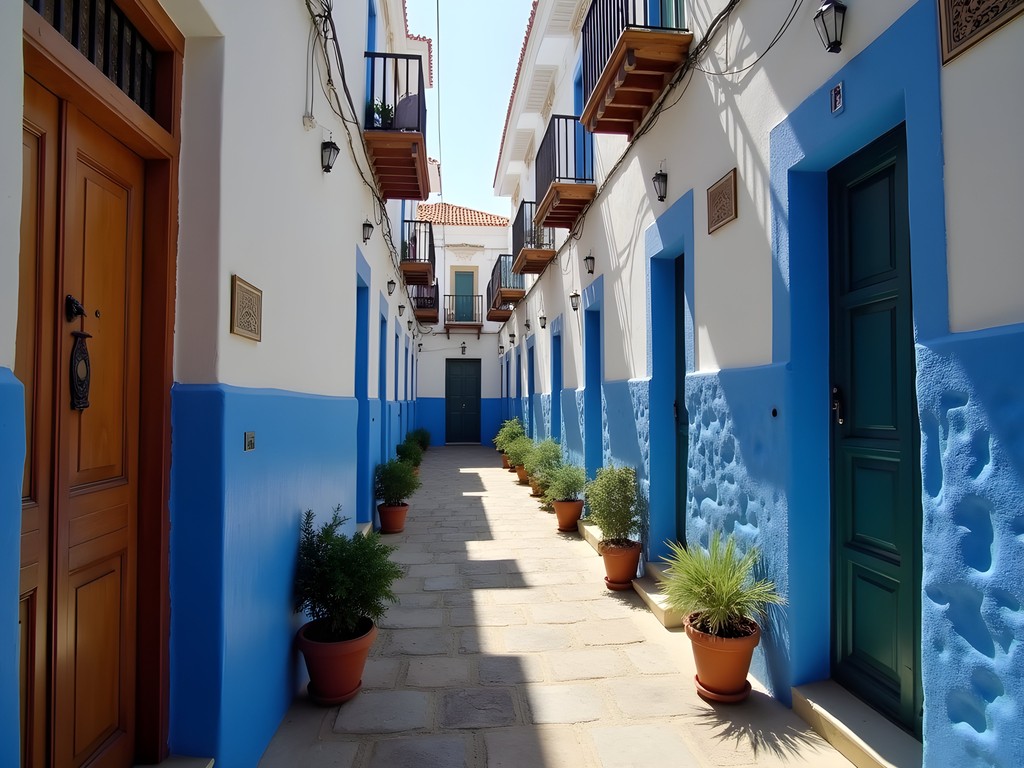
💡 Pro Tips
- Hire a local guide for exploring the Casbah – it's both safer and more informative
- Visit Martyrs' Memorial (Maqam E'chahid) for context on Algeria's hard-won independence
- Try to stay in Bab El Oued neighborhood for a more authentic experience than the downtown hotels
Culinary Journeys: Tasting Algeria's Soul
To understand a culture, you must taste it. Algeria's cuisine reflects its complex history – Berber foundations layered with Arab, Ottoman, and French influences. In both cities, I made food exploration a priority, often following my nose through residential neighborhoods to find where locals actually eat.
In Oran, the seafront restaurants near the port serve the freshest catch, but prices reflect the tourist appeal. Instead, I ventured to family-run establishments in the Sidi El Houari district, where I discovered doubara – Oran's version of bean stew, heavily spiced and served with olive oil-drenched bread for sopping up the flavorful broth.
Algiers offered even more culinary diversity. The restaurant scene is more developed, with options ranging from high-end establishments in Hydra neighborhood to humble street food vendors in Bab El Oued. My most memorable meal was at a tiny place near the Casbah where I was invited to join a table of local university professors. Together we shared rechta – silky handmade noodles with chicken and chickpeas – while discussing everything from Algerian literature to the country's evolving relationship with France.
Street food proved to be both delicious and economical. Karantika (chickpea cake), bourek (savory phyllo pastries), and mtabga (Algerian pizza) sustained me through long days of exploration. For the adventurous eater, the markets offer opportunities to sample local specialties. I tracked my culinary discoveries in my travel journal, creating a flavor map of both cities that I still reference when attempting to recreate these dishes at home.
Coffee culture deserves special mention. Algerian coffee – thick, strong, and often cardamom-scented – is served in tiny cups and designed to be savored slowly. Cafés function as the social heartbeat of neighborhoods, though they remain primarily male domains. As a visitor, I was welcomed but remained aware of the gender dynamics at play in these spaces.
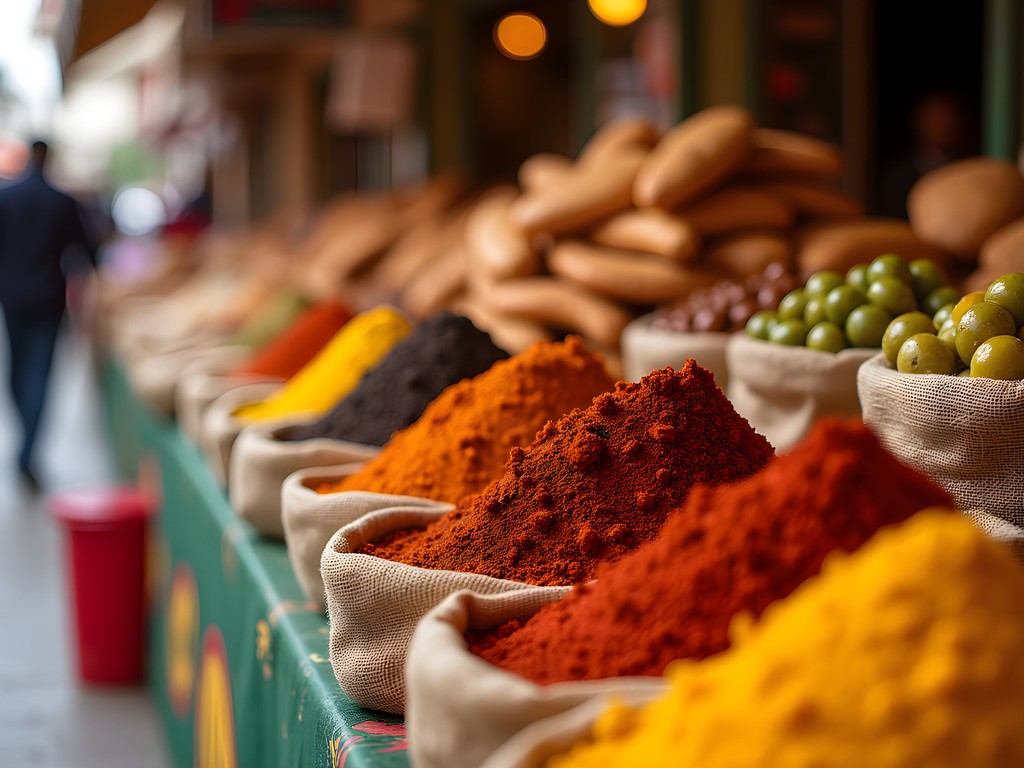
💡 Pro Tips
- Always accept food offerings – refusing is considered impolite in Algerian culture
- Try *kalb el louz* (cardamom-scented semolina cake) with mint tea for a traditional dessert experience
- Look for restaurants where menus are handwritten in Arabic – they're usually more authentic and affordable
Navigating Social Spaces as a Solo Traveler
Algeria presents unique challenges for solo travelers, particularly in navigating social spaces where tourism infrastructure remains underdeveloped. As someone who has backpacked through much of Southeast Asia and Latin America, I found Algeria required a different approach – one centered on patience, cultural sensitivity, and genuine human connection.
Language forms the foundation of this connection. While French is widely spoken (especially in Algiers), making an effort with Arabic phrases opened doors that would have remained firmly closed otherwise. I spent evenings practicing with my language guide, focusing on colloquial Algerian expressions rather than formal Arabic.
The concept of dardasha – the art of conversation and hospitality – remains central to Algerian culture. I lost count of how many times I was invited for coffee or tea by strangers who became friends. These spontaneous encounters provided insights no guidebook could offer – from the young architect in Oran who showed me hidden Art Deco buildings from the French period to the retired professor in Algiers who gave me an impromptu lecture on Amazigh (Berber) cultural resistance.
For solo travelers, especially non-Muslims, understanding religious customs is essential. My visits coincided with Friday prayers, when many businesses close from midday until mid-afternoon. Rather than seeing this as an inconvenience, I used these hours for reflection, writing, or simply observing how the cities' rhythms shifted around prayer times.
While Algeria has made significant security improvements in recent years, common-sense precautions remain advisable. I avoided photographing government buildings or police, dressed conservatively, and kept my valuables secure in a money belt worn under clothing. More importantly, I stayed aware of neighborhood boundaries – some areas in both cities are still sensitive for foreigners to visit without local accompaniment.
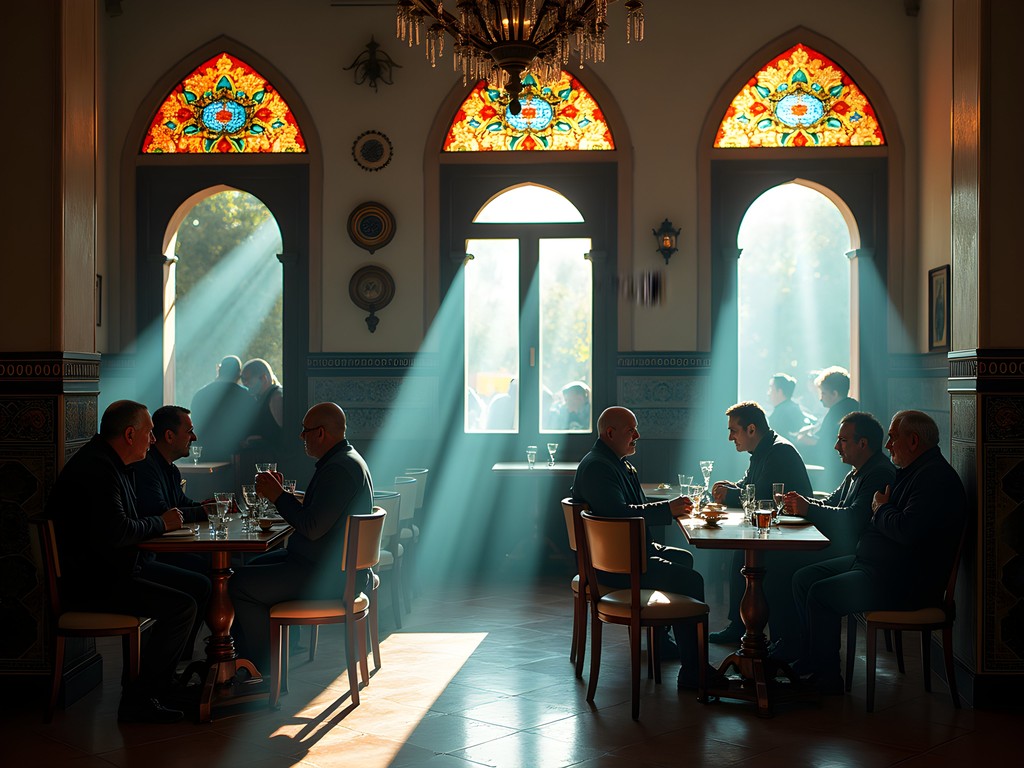
💡 Pro Tips
- Learn the difference between *shukran* (formal thank you) and *sahit* (the more colloquial Algerian thanks)
- Respect prayer times by planning indoor activities during Friday midday hours
- Connect with local university students through social media before your trip – many are eager to practice English and show visitors around
Final Thoughts
As my week in Algeria's coastal capitals drew to a close, I found myself sitting at a café overlooking Algiers' harbor, watching fishing boats return with the day's catch just as they've done for centuries. Algeria exists in a fascinating liminal space – neither fully embracing tourism nor completely closed to it. This creates both challenges and profound rewards for those willing to navigate its complexities.
These twin cities – Oran with its laid-back Mediterranean charm and Algiers with its revolutionary spirit – offer a glimpse into a North Africa rarely seen in travel media. They demand more from travelers: more patience, more cultural sensitivity, more willingness to embrace uncertainty. But in return, they offer authentic human connection and experiences untouched by mass tourism.
As I prepare for my next journey, Algeria's lessons stay with me – that sometimes the most rewarding destinations are those that don't reveal themselves easily, that require us to listen more than speak, to observe more than photograph. Inshallah, until we meet again, Algeria.
✨ Key Takeaways
- Algeria's coastal cities offer authentic urban exploration opportunities largely untouched by mass tourism
- Preparation is essential – from visa paperwork to cultural research – but allows access to remarkable experiences
- Building connections with locals transforms the experience from mere sightseeing to genuine cultural exchange
📋 Practical Information
Best Time to Visit
September to November
Budget Estimate
$40-60 USD per day for budget travelers
Recommended Duration
7 days minimum
Difficulty Level
Challenging

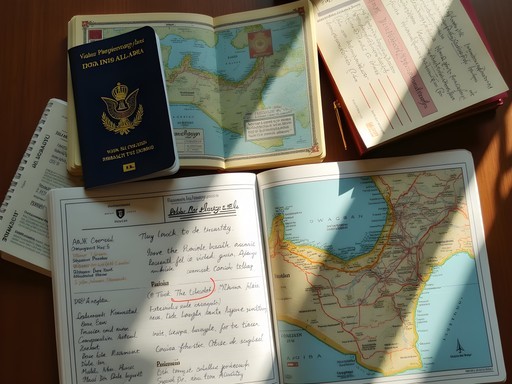
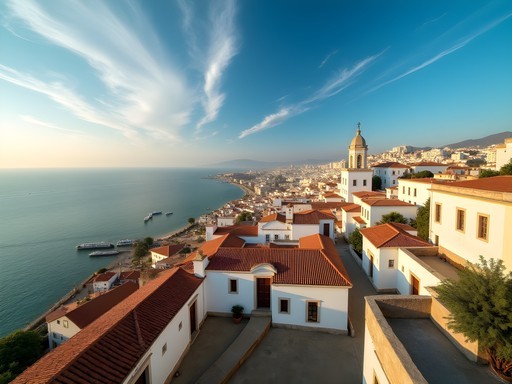
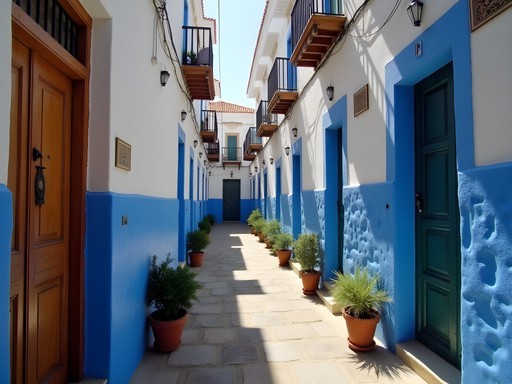
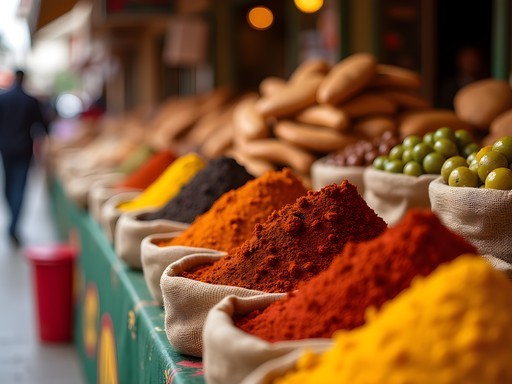
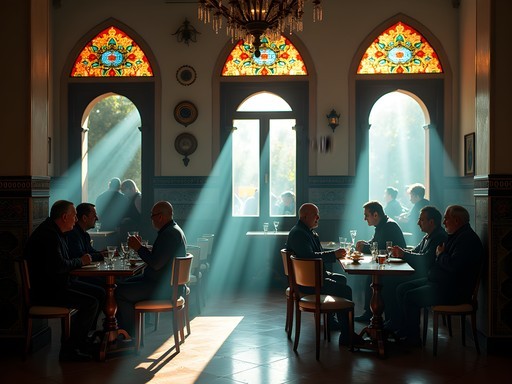


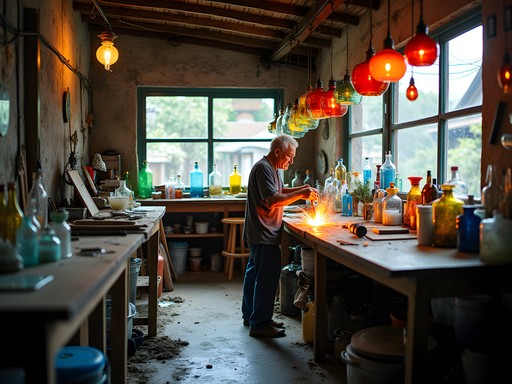
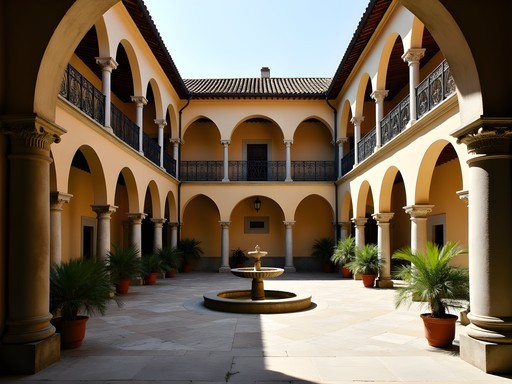
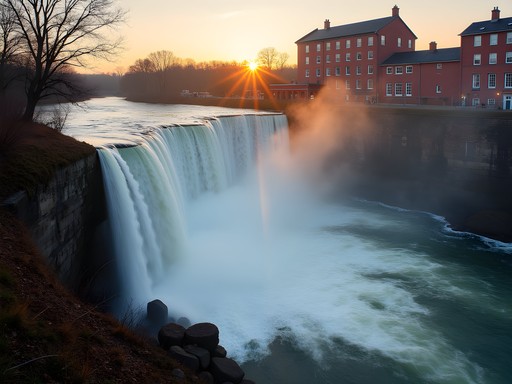
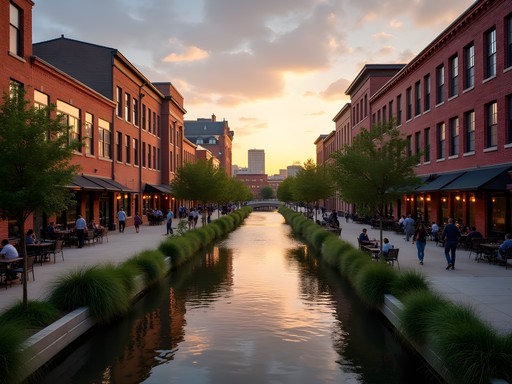
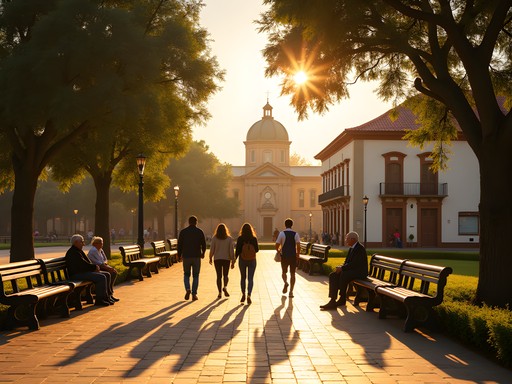

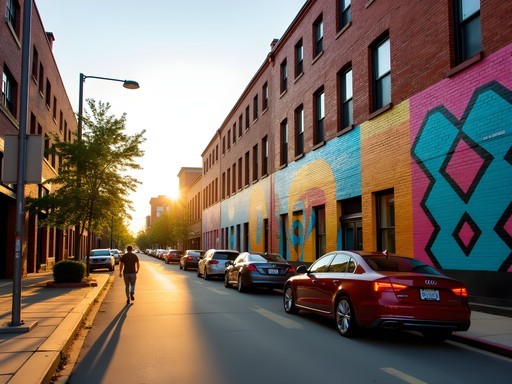
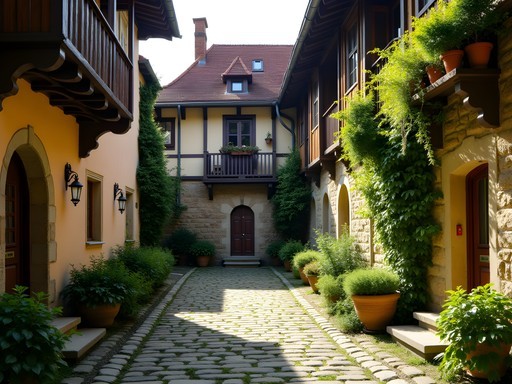
Comments
nomadzone
Great post! Quick tip for anyone going - download offline maps before you arrive. Data coverage can be spotty in the older parts of both cities
globebuddy
Good call, thanks!
Claire Hawkins
Kenji, this brought back memories of my own Mediterranean explorations! I grew up in Valencia so I completely understand that connection to the sea you describe. What struck me most was your culinary journey section – we're always looking for family-friendly food experiences and Algeria sounds amazing for that. Did you find restaurants accommodating for different dietary needs? My youngest has some allergies and that's always our biggest concern when exploring new cuisines. Also, how walkable were the medinas with the heat?
Kenji Brown
Claire, most places were quite accommodating when I explained dietary restrictions in French. The medinas are walkable but bring water and plan for breaks. Early morning or late afternoon is best for exploring with kids!
coffeebuddy
OMG the food section!! Now I'm craving those pastries you mentioned. The couscous looked incredible in your photos!
Sarah Powell
Really appreciate the nuanced perspective here, Kenji. I've been researching North African destinations for solo travel and Algeria keeps coming up as underrated. Your point about the Mediterranean feeling different there resonates – I found similar contrasts in Morocco's Atlantic coast versus the typical Med experience. How did you find navigating as a solo traveler in terms of safety and local interactions? I'm particularly curious about Oran since it gets less coverage than Algiers.
Kenji Brown
Sarah, I felt very safe in both cities. Oran was actually more relaxed and less touristy. People were incredibly welcoming once they realized I was genuinely interested in their culture. Just be respectful with photography and dress modestly.
globebuddy
How difficult was the visa process really? I've heard mixed things about getting into Algeria
Kenji Brown
It took about 3 weeks for me. You need a letter of invitation which can be tricky, but I went through a local tour operator who helped with the paperwork. Definitely start early!
nomadzone
Yeah the invitation letter is key. I used a hotel booking to get mine when I visited Tunisia and Morocco last year, similar process
wanderlustchamp
This is so cool! Never thought about Algeria as a destination
culinary_nomad
Your culinary section made me hungry! When I visited Oran last summer, I discovered this tiny place near Rue Larbi Ben M'Hidi that served the most incredible chorba frik I've ever tasted. The owner told me his family recipe was over 100 years old! Did you notice how different the seafood preparations are between the two cities? Oran seemed to have more Spanish influence while Algiers felt more traditionally North African in their spice profiles. Definitely agree about the coffee culture - those tiny cups pack a punch!
Kenji Brown
You've got a great palate! I absolutely noticed those regional differences. Oran's proximity to Morocco and Spain definitely shows in the cuisine. There's a forthcoming article where I dive deeper into Algeria's regional food variations - stay tuned!
globetrotter2025
Going to Algiers next month! How was the public transportation? Worth using or should I just stick with taxis?
Kenji Brown
The tram system in Algiers is actually quite good for hitting major spots! Clean and affordable. For anything off the main routes, taxis are your best bet - just make sure to agree on price before getting in. The blue and white shared taxis are super cheap but can be confusing if you don't speak French or Arabic.
happyhero6031
We did the public transportation too and it was great! Download Yassir app - it's like Uber for Algeria and saved us so many times!
adventurefan8914
Those sunset pics from Oran's harbor are absolutely stunning! Adding Algeria to my bucket list right now.
travelbugg_45
Those harbor photos are stunning! Adding Algeria to my list!
Venture X
Premium card with 2X miles, $300 travel credit, Priority Pass